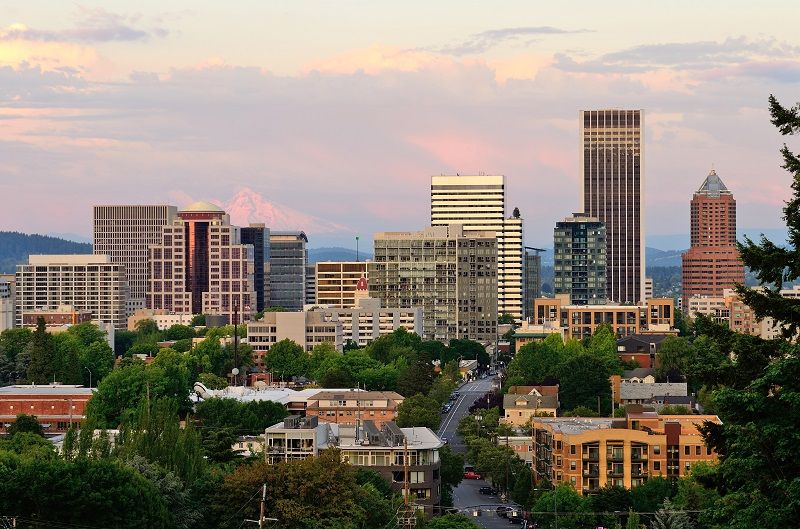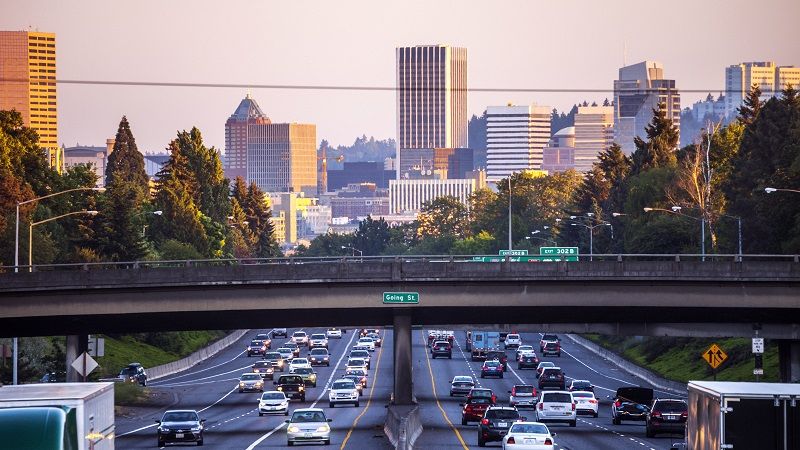By Eric Fruits, Ph.D.
What if the self-proclaimed “City that Works” isn’t working? That’s what Portland residents are saying.
Last week the City of Portland published its most recent survey of city residents. Nearly 90 percent of those surveyed are dissatisfied with the city’s response to homelessness and almost two-thirds are dissatisfied with traffic congestion on their daily commutes.
This outrage comes after voters approved hundreds of millions of dollars for affordable housing projects and steep hikes in gas taxes to improve roads. Clearly, more money is not the answer: The more the city spends, the worse things get.
Council’s renter relocation payments, inclusionary zoning, and renter screening rules are shrinking the supply of affordable housing. While the city’s population is growing, it’s reducing its road infrastructure through road diets and replacing automobile lanes with dedicated bus and bike lanes.
Instead of punishing property owners for renting apartments, let’s loosen regulations on building and renting truly affordable housing. Instead of bringing traffic to a standstill, let’s add traffic lanes to foster a safe and speedy flow of auto and truck traffic. These aren’t radical ideas. In fact, these were Portland’s policies when it really was “The City that Worked.”
Eric Fruits, Ph.D. is Vice President of Research at Cascade Policy Institute, Oregon’s free market public policy research organization.
Click here for PDF version:
8-28-19-Residents_Say_Portland_is_Not_the_City_that_WorksPDF













Bob "Elvis" Clark
In Alain Bertraud’s book “Order without Design” he writes mobility is an urban necessity, and it is actually the lowest income households who suffer the most from poor mobility. Bertraud is a urban planner who mixes in economics into planning.
But what you have in Portland is planners advocating for limiting mobility. Folks are limited to walking, bicycling and limited transit service. Roads are narrowed. This shrinks the job opportunities, via worsening mobility, for all people including, the poorest folks. The Cost of living shoots higher even with added density and smaller living quarters, as the cost of freight shipping escalates and the competition for goods and services shrinks to that of just your very proximate living location.
While planners talk of the inequity caused by zoning, these very same planners are imposing heavier burdens on the lower income class they ironically say they are assisting.